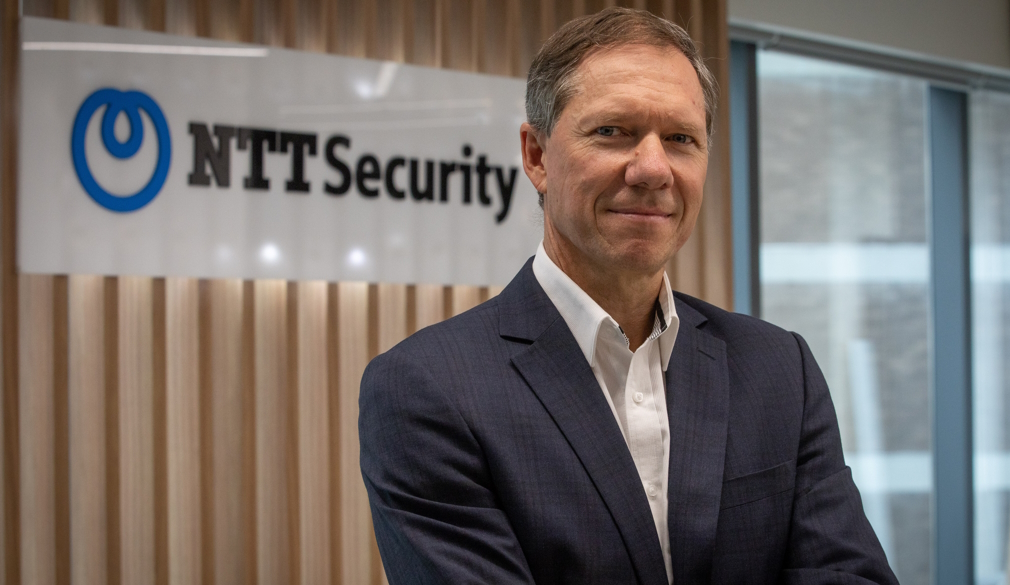The importance of training the next generation workforce against cyberthreats
- Written by John Karabin, Senior Director of Cybersecurity, NTT Ltd

Our society is rapidly evolving with new advancements in technology that have forever changed the way we live and work. The growth of cloud computing, Artificial Intelligence (AI) and Internet-of-Things (IoT) have made businesses more flexible, productive and connected than ever before. While technology has created many benefits, it has also brought about an increased risk of cyberthreats, which can cause significant damage to businesses.
From July 2021 to June 2022, the Australian Cyber Security Centre received over 76,000 cybercrime reports, which is an increase of nearly 13 per cent from the previous financial year and what is even more significant is that one report is made every 7 minutes. At the same time, we are also experiencing a shift in workplace dynamics with the younger generation – Generation Z – entering the workforce. While we may automatically think that the generation born around technology will be the most cyber-secure, a recent survey by Commbank has uncovered a surprising truth that younger Australians are actually the least cyber-safe generation despite their tech-savviness.
With the increasing risk of cyberthreats and the younger generation entering the workforce, how can businesses ensure that they are adequately prepared to deal with these impending threats?
Curating cybersecurity programs for the younger generations
Living in a digital age, the younger generation has been exposed to the internet and social media from a young age, learning to multitask and use multiple devices at a time which can result in them often being distracted and not paying attention to detail. With malicious actors becoming increasingly sophisticated, it leaves the younger generation more vulnerable to cyber scams than ever before. It is therefore important that young adults are aware of the potential threats and vulnerabilities and do not fall prey to them.
Education towards cyberthreats needs to begin early. High schools and universities play a pivotal role in teaching and shaping the younger generation to cultivate a vigilant mindset and be able to identify potential cyberthreats. With the abundance of resources, schools are able to offer students opportunities to learn more about cybersecurity through introductory workshops and mentorship programs which will allow students to gain more knowledge about cybersecurity, the revolving threats and how to safeguard themselves.
Programs such as hackathons, accelerators and start-up incubators also provide students with the opportunities to explore their interests and interact with cybersecurity experts and professionals to see if they are keen on building a career in cybersecurity. This not only offers the younger generation a career pathway but also instils the importance of staying cyber-safe from an early stage. Given the increasing prevalence of cyberthreats in today's world, this proactive approach is crucial for nurturing the next generation of vigilant young adults and protecting them and the future companies they are helping shape from potential dangers.
Implementing cybersecurity programs and trainings for all employees
Cyberthreat actors are increasingly innovative and continuously finding new and innovative ways to exploit workers. Despite younger employees having awareness of common cyberattacks like phishing and malware, cyberthreats can now come in various forms, such as emails, text messages, and website pop-ups.
To safeguard their workforce, businesses need to have cybersecurity training programs in place that educate employees on the various types of cyber attacks, how to detect a cyberthreat and best practices for cybersecurity. This is especially important for younger generations joining the workforce who may not understand the severity and potential damage of a cyber threat. These programs should also take place on a regular basis to ensure that any new forms of cyberthreats are shared as a refresher for employees. By doing so, these cybersecurity techniques will be ingrained into the daily lives of employees and they will learn to be more alert when faced with a cyber threat.
Cybersecurity training programs foster a culture of cyber safety and increase awareness among all employees about the importance of remaining vigilant against cyberthreats.
Keeping over-complicated software over
While companies have increasingly invested in cybersecurity tools to strengthen their cyber resilience, business leaders need to be mindful that tools which are overly complicated to use can result in resistance from employees to learn and use the software. While many organisations will be inclined to select new technologies based on their costs or features, a more complex tool will not be fully optimised as intended if employees find them difficult to understand and use.
When choosing a new tech software, organisations should look for one that can be easily incorporated into daily operations, is easy to learn and is accessible to every employee. Cybersecurity software is supposed to help employees to safeguard their devices against potential cyberthreats, however, if the software requires a long process to activate or has a confusing set of instructions, it may deter employees from using them, resulting in a low adoption rate and leaving employees and therefore your organisation vulnerable to cyber attacks.
To ensure that employees are well-protected against the increasing risk of cyberthreats, the software implemented should be easy to use so that minimal training is required. This way, younger employees will not be averse to using the product and be able to easily integrate the software into their daily lives.
Cultivating the future Gen Z workforce
As Gen Z enters the workforce, their tech savviness and creativity provide businesses with the opportunity to create a competitive advantage, however, this is not without its challenges. To build a cyber-safe workforce, businesses need to ensure that Gen Z workers are empowered with the right tools and cyber knowledge so that they can stay alert against any cyberthreats and protect the business against any potential cyberattacks. Awareness and prevention is key, and having a workforce that understands the importance of being cyber-vigilant will set the business up for long-term success.
John Karabin, Senior Director of Cybersecurity, NTT Ltd.






